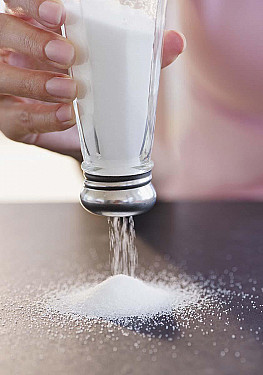Matcha: A look at possible health benefits
- Reviewed by Teresa Fung, MS, RD, ScD, Contributor; Editorial Advisory Board Member, Harvard Health Publishing

Notable for its vibrant green color, matcha is a powder made from green tea leaves. It can be enjoyed as a tea or added to smoothies, baked goods, and other foods.
Matcha contains ingredients that have been linked to a range of health benefits. But is there evidence that matcha can promote heart health, cognition, and other conditions it's been purported to benefit?
What is matcha?
Matcha is a vivid green, concentrated powder made from the leaves of the Camellia sinensis tea plant. It is found most commonly in Japan and China, and tends to have a distinct flavor that is sweeter and smoother than other green teas.
What's the difference between matcha and green tea?
Matcha is a type of green tea. It is grown in the shade, which has the effect of boosting the amount of certain phytochemicals (plant chemicals that offer a range of potential health benefits, including anti-inflammatory effects), antioxidants, and other ingredients it contains compared to other types of green tea.
Matcha is typically consumed in powdered form; matcha powder is simply whisked together with hot water for matcha tea. Matcha tea bags are also available and can be steeped in hot water like traditional teas.
Does matcha have caffeine?
Yes — in fact, matcha's caffeine content is typically higher than that of other green teas but lower than that of coffee. Here's a caffeine comparison for one 8-ounce cup of each:
- Green tea: 23 milligrams (mg) to 49 mg caffeine
- Matcha: 38 mg to 89 mg caffeine
- Coffee: 100 mg to 120 mg caffeine
Watch your matcha intake later in the day if caffeine makes it hard for you to fall or stay asleep.
Possible health benefits of matcha
Matcha contains an abundance of antioxidants (including polyphenols such as catechins) and phytochemicals (such as chlorophyll and quercetin). These substances may have some positive effects on our health, particularly when they are consumed in foods that naturally contain them.
Here's what we know about some substances found in matcha:
- A meta-analysis published in the European Journal of Nutrition found that antioxidants called catechins found in green tea help lower blood pressure and LDL ("bad") cholesterol levels. Rutin, a bioflavonoid found in matcha, also contributes to these effects.
- Polyphenols have anti-inflammatory effects.
- The amino acid L-theanine, found in matcha, has been associated with improved concentration and alertness.
- Antioxidants and polyphenols may help improve insulin sensitivity.
While this is promising, more research needs to be done in humans to support claims that have been made about matcha regarding improved cardiovascular health, cognition, and other health benefits.
And a caveat: Antioxidants are sensitive to heat. Matcha is often prepared as a tea with hot water or baked into food products, which could mean a reduced antioxidant effect.
Ideas for adding matcha to foods and drinks
One of the appealing things about matcha is its versatility. Here a few ideas for adding matcha to foods and drinks:
- Whisk into hot water for matcha tea, or into warm or hot milk to make a matcha latte (about 1 teaspoon of matcha per cup of liquid).
- Blend it into a fruit smoothie.
- Use it in salad dressing.
- Add it to cereal, oatmeal, or yogurt.
- Sprinkle on plain popcorn.
- Add it to baked goods like cookies, brownies, or cupcakes for a pop of color and flavor.
About the Author

Christina Frank, Health Writer
About the Reviewer

Teresa Fung, MS, RD, ScD, Contributor; Editorial Advisory Board Member, Harvard Health Publishing
Disclaimer:
As a service to our readers, Harvard Health Publishing provides access to our library of archived content. Please note the date of last review or update on all articles.
No content on this site, regardless of date, should ever be used as a substitute for direct medical advice from your doctor or other qualified clinician.















